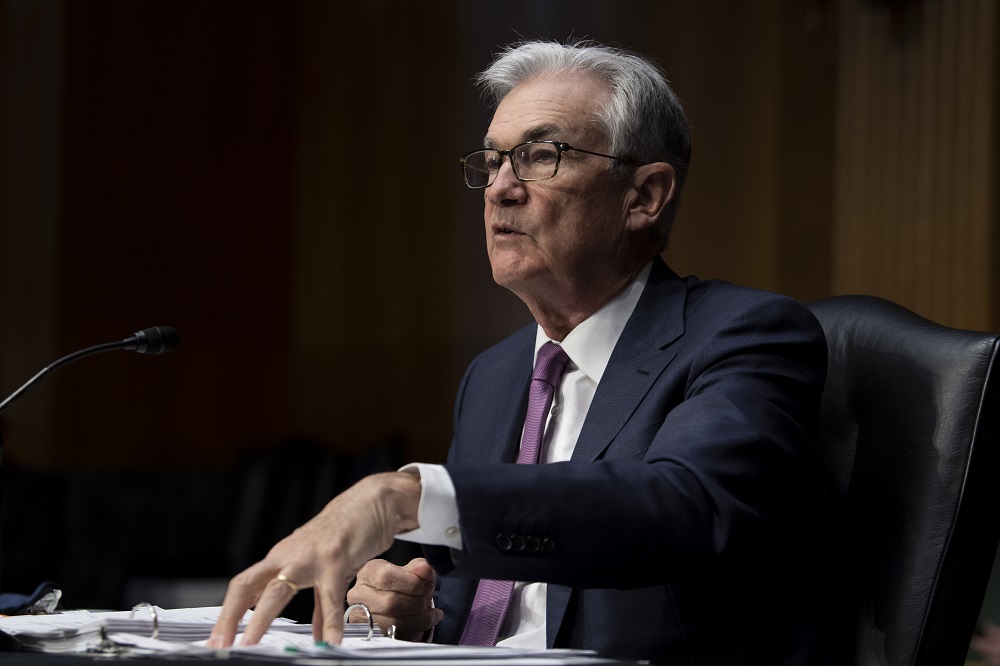Will the FED leave rates unchanged?
This Wednesday’s FOMC meeting is widely expected to see the Fed leave rates unchanged.

The Fed may leave rates unchanged
>> Which central banks will pause rate hikes?
In the UK, more and more food retailers are removing the sell-by date on perishable goods. Why are they doing this? It is because they feel they can trust consumers to know when a product should no longer be consumer. Many analysts said the Fed would take a leaf out of this particular book and start to trust the markets to say where they think policy rates will move over time.
This Wednesday’s FOMC meeting is widely expected to see the Fed leave rates unchanged. It’s almost a 50:50 call, but many people too lean towards the idea that the Fed will pause. However, the Fed’s Summary of Economic Projections (SEPS) shows that the median view of FOMC members is that rates will still be at their current level come the end of the year. Most of those that forecast no change from the Fed this week also do so largely because the Fed has ‘told us as much’ through its forecasts as well as its verbal guidance.
Now, of course, the Fed could rip up this forecast with its new DOTS plot on Wednesday and Chair Powell’s guidance could quickly switch towards higher rates if the Fed hikes another 25-bps. But there is a sense in the market, rightly or wrongly, that the Fed has set out its stall to pause for now and hence there could be a very adverse response in asset markets if the Fed were to lift rates.
But is it a good thing that the Fed’s forecasts and guidance have this magnet-like effect on market pricing and analyst expectations? Mr. Steve Barrow, Head of Standard Bank G10 Strategy thinks the answer is a definite “no”. We do see a case for this sort of guidance when policy rates are stuck at the zero lower bound as it gives central banks the ability to get a bit more bang for the buck. But when rates are at more normal levels, and when uncertainty around inflation and the course of rates is very high, the Fed seems more likely to harm rather than help with its policy guidance.
Of course, market expectations can – and do – diverge from the levels the Fed is suggesting. However, this is often very modest. One way to see this is to look at the UK where the Bank of England offers no such forecasts and very limit ed guidance compared to the Fed.
Admittedly, there is a sort of implicit guidance here because the Bank’s forecasts of economic data, notably inflation, are formed using market expectations for rates. Hence if the Bank’s forecasts show inflation significantly undershooting the target over the forecast horizon the market might infer that its pricing of base rates in the future is higher than MPC members might be anticipating (or lower if the BoE’s forecast is for inflation to overshoot the target).
>> When will the FED cut interest rates?
On occasions in the past, such as last autumn, the Bank of England has even argued that implied market expectations are too high or too low (too high in this case) on this basis. Nonetheless, Mr. Steve Barrow’s sense is still that market expectations in the UK are set in a much “freer” environment. That’s important for the BoE because it feeds important information into the Bank about market expectations. These same expectations are missing in the US if the market is simply repeating back the Fed’s own forecasts.
What should be done? Mr. Steve Barrow said the Fed should drop its rate forecasts (but not its other macro forecasts) when the policy rate is away from the zero lower bound. In doing so, the Fed would glean better information about where analysts and markets see rates going in the future. This is not because the market is likely to be right and the Fed wrong. Most studies tend to suggest that the Fed is the best forecaster. But this is not a competition. It is an issue of gaining all relevant information in making policy decisions and if one input, ‘free’ market-based expectations, is compromised by the fact that the Fed makes its own rate forecasts, then these should be removed.
Is that likely to happen? Probably not. So, will the market hang on whatever new forecast FOMC members make this week? Probably, yes. And does that, in turn, suggest that the market will start to price in a higher rate peak than it has done previously? Probably ‘yes’ again.








